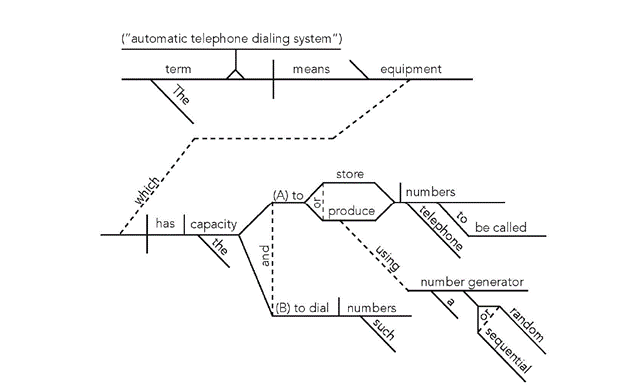It may not always seem like it given my jaunty prose but I love eloquence. Remember I’m a big Eugene Ehrlich fan.
While I specialize in plain speak these days, that’s because of my peculiar status as one of the nation’s foremost legal bloggers. Its my job to be clear and direct, and heightened language can clog up the works at times–even if otherwise enjoyable to write and read.
The federal bench has also taken a detour from eloquence toward clarity recently, with many courts–particularly appellate courts– addressing complex issues in pithy opinions.
But Hancock v. Credit Pros Int’l Corp. Civil Action No.: 2:20-cv-02826-SRC-CLW, 2021 U.S. Dist. LEXIS 131055 (D. N.J. July 13, 2021) is an old-school ruling. Well written. Thoroughly–and I mean thoroughly–analyzed. And ultimately correctly decided.
At issue in Hancock was whether the Defendant might be permitted leave to amend its answer after the time to do so had run. The purpose of the proposed amendment was to add defenses related to Creasy.
The Plaintiff urged that leave be denied because the addition was untimely and would be futile. But the Court thoughtfully disagreed. Reasoning that the Defendant had sought leave quickly after the first Creasy ruling–they presumably read about that on tcpaworld.com– the Court found Defendant had been diligent in pursuing amendment.

And as to futility:
The question of whether AAPC compels dismissal of Plaintiff’s TCPA claims is a good one, with venerable federal courts supporting both sides of the ledger.
See how nicely worded that is? Beats “some courts have gone both ways” or the like.
The Court also noted that it need not itself determine whether Creasy was properly decided to permit the amendment owing to the lower threshold for affirmative defenses:
Because the standard for asserting affirmative defenses is different (and to be sure, lower) than that for asserting claims—i.e., claims must be “show[n]” while defenses just need to be “state[d]”—likewise, amendment of defenses involves a different (again, lower) futility standard than amendment of claims
Better than I would have said it.
The Court concludes that Creasy may or may not be correct, but the rulings issued in cases following Creasy were well-reasoned and cannot be dismissed out of hand:
Three federal district courts, although representing the minority view, have conducted thorough analyses and duly concluded that such defenses not only are colorable under Rule 12(f) but in fact compel dismissal under the more searching Rule 12(b).
Very nice.
So there you go. Any TCPA defendant out there who does not want to take a crack at a motion to dismiss on Creasy grounds should certainly be asserting affirmative defenses preserving the argument.
Such defenses are perfectly viable as Hancock well and truly explains.




 i
i


